






Interview tips and techniques for the charity and non-profit sector
You have applied for your dream job and have been invited for an interview. This can be a nerve-wracking process, but preparation can go a long way to allay some of your worries.
You have applied for your dream job and have been invited for an interview. This can be a nerve-wracking process, but preparation can go a long way to allay some of your worries. The charity and non-profit sector is a unique space and the best interview prep will research interview questions that cover all bases.
It is well worth creating a document with potential question categories and populating this with specific answers that draw from real-life experience.
Skills & competencies
In an increasingly challenging market and a skills shortage, these kinds of questions are arguably more important than your qualifications. A lot of your academic achievements and your experience would have been detailed on your CV; skills and competency questions will probe your character and response to certain situations. Some examples of questions could be:
Driving results
• What opportunities have you identified and used to achieve success?
Planning and organisation
• Describe a time when you have had to plan a large piece of work.
Communication
• Can you please give a specific example of when you have had to influence a colleague to your way of thinking?
Understanding what evidence, the interviewers are looking for is critical.
Research the organisation
If you have decided to apply for a role in the charity sector, you would have researched the organisation. The interview will probe this on a deep level as they want to assess your motivations. In addition, there will be an expectation that you have navigated around their website, looked at their socials and read their latest reports. Don’t be surprised if you are asked specific questions about their content or recent projects delivered by the charity. If they have a team page or blog content, this can be an incredibly useful tool for an interview as it is here you may find common ground with individuals interviewing you.
Personal alignment with the organisation
In your research we would also recommend you have done your best to understand the mission, values and culture of the organisation. Most organisations will have their values or ways of working recorded in a report or on their website, it is important that you evidence how you align with their approach, as well as how you can bring further value to the culture.
You may also find this information in the job description.It might seem really obvious, but before you interview with the organisation be sure to have gone back over that document to really understand exactly what they are looking for, and plan how you will demonstrate that you meet the requirements of the job description and person specification.
Typical questions for that role
Whatever position you are going for within a charity, foundationor organisation, you will be able to find many of the typical questions for that position online. Bear in mind that particularly in a fundraising role, for example, the interviewer will want to know specific tangible results that you have achieved.
Unexpected questions
The saying goes expect the unexpected, and this applies to an interview. It is often not the question itself; it is how you react to being asked something separate from the position you are applying for. You may have noticed, looking at their team pagethat they have profiles crafted in an interview style. This may give you an insight into personality and culture as well. Whilst you have no way of knowing what you will be asked that is outside the normal scope of the role, entering the process in a relaxed frame of mind, and taking your time to answer questions is always helpful.
Be prepared to expand on your CV
If you have referenced a particular campaign or event that you were responsible for, be prepared to talk about the successes of that and what your contribution was. This is not the time to be shy, the interviewers need solid evidence that you can deliver what they need.
Even if the spec suggests an informal chat, always treat this as an interview and dress appropriately. Remember this is also your space to find out if the organisation is the right fit for you and have questions ready to ask about them.
We know it's easier said than done, but relax, take your time and be your authentic self. You've got this














